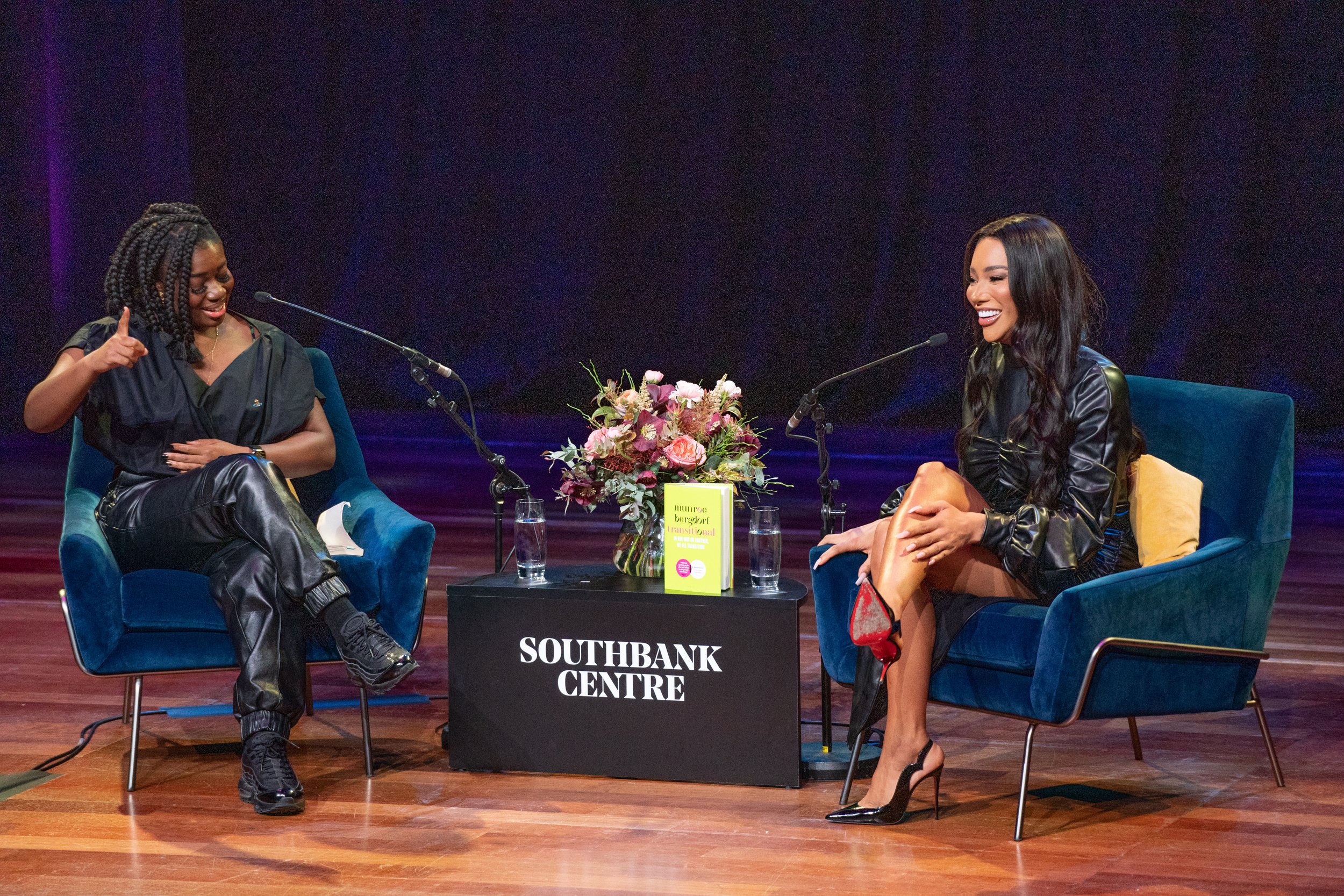Munroe Bergdorf: Transitional in conversation with Clara Amfo
Image: Pete Woodhead, Southbank Centre
At first glance, I didn’t realise how much truth, power and resilience the tagline of the book ‘Transitional’ had; that is, until Munroe’s life-affirming and intimate book launch at the Southbank Centre’s Queen Elizabeth Hall, London, last week. Written by renowned activist, model, advocate and icon, Munroe Bergdorf, the tagline reads: “In One Way or Another, We All Transition”. In conversation with broadcaster and presenter Clara Amfo, Munroe unpacked significant moments from her life, and how each of these experiences contribute to the underlying notion that transitioning is an essential part of all of our lives: “We all transition. It's what binds us, not what separates us.” In this way, transitioning is not just an individualistic process, but a collective experience that involves the changes in our relationships to ourselves and others, the growth of mindsets and our human experience.
The evening began in the hustle and bustle of central London. I’ve admired Munroe’s work since the time that she spoke up about the unfair treatment that she received from her workplace, to her transition to becoming a founding consultant of L’oreal Paris’ UK Diversity and Inclusion Board. Munroe spoke passionately about the importance of major organisations and the need for them to take accountability, especially in a moment of time when conversations surrounding race, discrimination, and transphobia are more pivotal now than ever - with an influx of social justice campaigns and global movements around the injustices impacting Black Lives, Women’s Health, LGBTQIA+ rights and more, her work continues to have an impact on a wave of activism and a drive for social change, including how motivated I am to use my radio and social platforms to champion my own voice, and the voices of other marginalised people. Over the years, I’ve listened to Munroe’s podcast and have admired her ability to make information and resources accessible and concise, as well as her consistent dedication to being authentic.
When arriving at the Southbank Centre, I was met with the conversational buzz of admirers of Munroe’s work discussing their excitement about the talk, as others silently leafed through the book’s pages in the corners of quiet booths scattered around the foyer. The buzz in the foyer lifted closer and closer towards the time of the talk, anticipating the doors opening so that we could be seated. The smell of popcorn and coffee wafted throughout, an unlikely but fitting combination of warmth and cosiness. To be amongst so many people, some of whom were there to support Munroe, some to learn, to unlearn, some who had only come across Munroe’s story that evening, was life-affirming. We sipped our drinks as the crowds streamed into the auditorium, busy finding their seats and eagerly looking at the stage. We waited for the speakers to arrive. What began as a deconstruction of a deeply personal book filled with honesty and self empowerment, became an open discussion that applied to everyday life; from the importance of noticing and applying transitional thinking to the barriers that we may place within ourselves and towards each other, to trans rights - the deserved existence of trans people, how to be a better ally, and how to heal and build community knowing that our differences can be used to our collective power.
During the conversation, Munroe encouraged: “If we pull together and stand up for each other’s marginalisation, we might just live a life of safety.” Munroe is the National Advocate for UN Women UK, and as part of UN Women UK’s 10 year history of creating safer public spaces around the world, Munroe advocates for a progressive transition towards inclusivity - one that asks of us to band together.
Munroe also spoke of her childhood. She shared with Clara, “I was seen as a threat to so many people,” and that, “being a person of colour in an extremely white area [her hometown] became a difficult area to exist in.” I was captivated by Munroe’s down-to-earth storytelling, alongside her personal connection with Clara. I left feeling emotional, moved, and inspired to read her book; I believe it to be more than just a guide for change makers and activists, but an opportunity to reflect on transitions, to feel deep acceptance and to activate conscious development no matter who you are.

